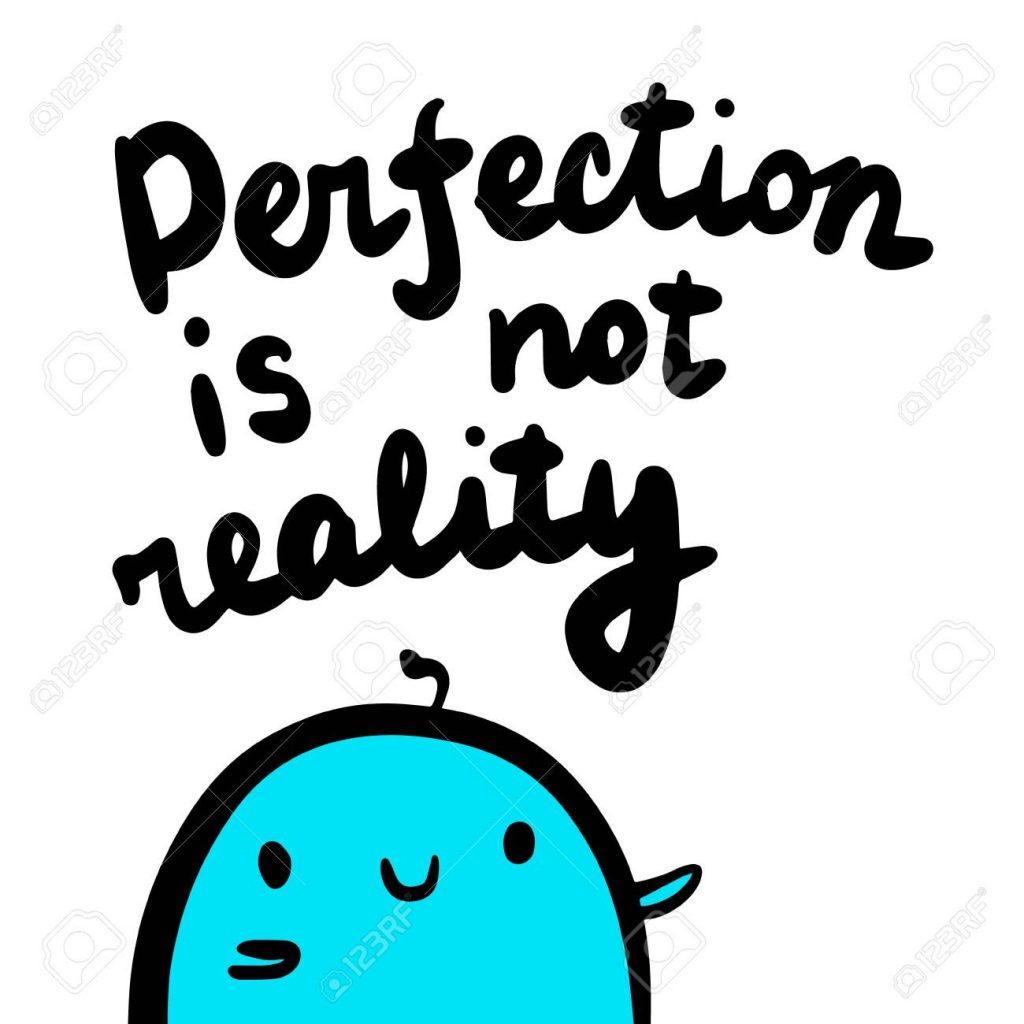In a world that often celebrates flawlessness and achievement, the pressure to be perfect can feel discouraging. For the many who have grappled with perfectionism, at first, we never knew it. It’s hidden in the competitiveness of our modern culture. The constant striving for impossible standards, the fear of failure, and the never-ending cycle of self-criticism can be exhausting and disheartening. But through self-awareness, it’s possible to break free from the chains of perfectionism and find joy in embracing imperfection.
Perfectionism, while often praised as a positive trait, can actually have detrimental effects on mental well-being. The relentless chase after perfection can lead to anxiety, depression, and complete burnout. From my own experience, my perfectionistic tendencies left me feeling chronically overwhelmed and never satisfied with my accomplishments. Since I never felt like I was enough, I always kept pushing myself over the limits until I hit a breaking point of exhaustion that I realized something had to change.

Realizing the Negative Impacts
One of the first steps in managing perfectionism is recognizing its negative impact on our mental and physical lives. For me, this realization came gradually since I had no clear guidance and thought it was a normal part of life. When I became aware that I was constantly anxious, always worrying about making mistakes or falling short of expectations, I was determined to stop normalizing such draining emotions. This choice made all the difference as it allowed me to think with more flexibility in balancing my academic and social life.
The Reality
Letting go of unrealistic standards is easier said than done, but it’s crucial since perfectionism feeds from these impractical realities. First, I had to challenge the belief that my worth was equal to my materialistic achievements and learn to embrace the beauty of imperfection. How? This meant allowing myself to make mistakes, accepting that failure is a natural part of the learning process, and practicing self-compassion when things didn’t go as planned. Also, remembering to make a conscious effort to not berate myself since it is just like smudging an ink stain and making it worse as it spreads all over.
Moreover, set realistic goals that are challenging yet attainable, allowing yourself room to grow and learn along the way. Celebrating small victories and progress, no matter how small, is essential in building confidence and self-esteem.
Practicing Mindfulness
One of the most powerful strategies I’ve found for managing perfectionism is practicing mindfulness. Mindfulness teaches us to be present in the moment and to observe our thoughts and feelings without judgment. Through mindful meditation, you learn to cultivate a greater sense of self-awareness and self-compassion. It also helps in redirecting focus back to the present and not grieving about the past. This helped me find peace, acceptance, and novel solutions to my problems that work.
Finally, seeking support from family and friends has been invaluable in my journey to manage perfectionism. Whether it’s through therapy, support groups, or talking openly with friends and loved ones, you will find a sense of connection and understanding that helps with removing the isolation part of your struggles. Moreover, knowing that you are not the only one battling with perfectionism is incredibly validating and empowering.
Imperfect = I’m Perfect
Managing perfectionism isn’t like flipping a switch that instantly turns off. It’s an ongoing journey. Consistency is key! There are times when I find myself slipping back into old habits of self-criticism and striving for perfection. While these habits can be motivating, the drawbacks often outweigh the benefits. It’s important to adopt better strategies that allow you to reach the same goals while prioritizing your overall well-being. Perfection doesn’t prioritize your health, it only cares about the results. By understanding this, you learn to quiet the voice of perfectionism and embrace the imperfect beauty of being human.


